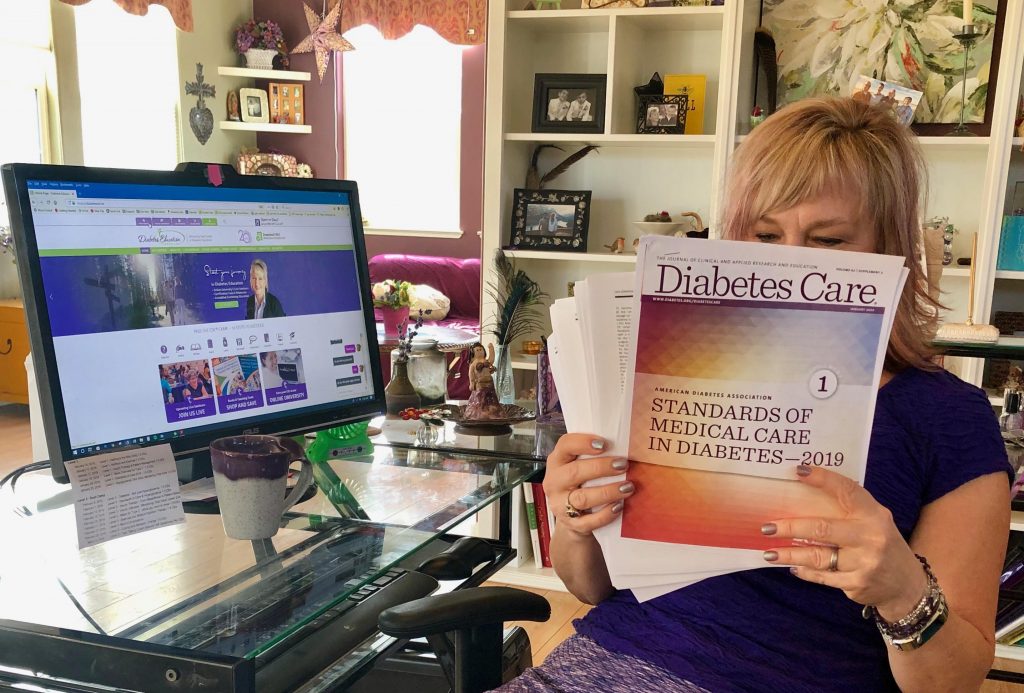Fructose-sweetened drinks increase diabetes risk?
A recent review published by the academic British Medical Journal, “BMJ”, has found that high-fructose containing drinks may increase risk of type 2 diabetes more than other foods containing fructose.
Previous studies have confirmed that there is a link between sugary drinks and obesity. As few as two sugary drinks per week may raise the risk of type 2 diabetes considerably.
Now, a comprehensive review of existing research confirms that fructose-containing drinks can increase the risk of type 2 diabetes more than other foods that contain fructose.
The head researcher on the review, Dr. John Sievenpiper, aimed to find if fructose affects glucose levels and health in individuals with diabetes and without diabetes.
As we know, fructose is a monosaccharide that is found in many foods such as fruit, honey, and root vegetables.
However, processed fructose, often derived from corn and added to foods under the name high- fructose corn syrup, has found its way into many processed foods. These processed foods such as drinks, cereals, and baked goods add extra calories without adding fiber or other nutritional benefits.
Dr. John Sievenpiper’s research reviewed the outcomes of 155 studies and examined the effects that fructose from various food sources had on blood sugar levels. A1c, glucose and insulin levels were assessed.
The studies were separated into four separate groups based on their design:
- Substitution studies compared the energy derived from sugars with that from other carbohydrates.
- Subtraction studies removed sugar-derived energy from the participants’ diet and compared it with a regular diet.
- Addition studies added glucose-derived energy to the diet and compared it with a non-sugar-enhanced diet.
- Ad libitum studies replaced the energy from sugars with other nutrients that the participants were free to consume at will.
The review concluded that “nutrient-poor” foods that add excess calories (sugary drinks and sweetened juices) have harmful metabolic effects.
Some of the studies conducted did find that fructose had a harmful effect on fasting insulin levels.
However, most of the data revealed that fruit and fruit juice, which are high in fructose and fiber, may even benefit blood sugar and insulin levels of those with diabetes, when these foods do not add excess calories, the review suggests.
The take home message is:
Until more information is available, public health professionals should be aware that harmful effects of fructose sugars on blood glucose seem to be mediated by energy and food source.”
For more information on fructose and its effect on blood sugar and insulin levels, by MedicalNewsToday
Sign up for Diabetes Blog Bytes – we post one daily Blog Byte from Monday to Friday. And of course, Tuesday is our Question of the Week. It’s Informative and FREE! Sign up below!
[yikes-mailchimp form=”1″]You’re Invited | 2019 Diabetes Ed Event Schedule
|
|
|
|
|
|
Women Leaders in Diabetes | Conference on May 10, 2019

- Are you feeling discouraged because your suggestions for improvement aren’t acknowledged?
- Do you run into barriers when you try to implement change?
- Are you ready to see your ideas come to light?
Join us to get inspired by diabetes champions.
 Everyone is invited to hear the stories of women luminaries, who have taken risks, challenged the status-quo and were able to turn their ideas into action against the odds.
Everyone is invited to hear the stories of women luminaries, who have taken risks, challenged the status-quo and were able to turn their ideas into action against the odds.
Learn from national diabetes health care leaders and mentors as they share their efforts to improve care.
Get ready to be inspired! You will hear the steps they took to overcome barriers, envision delivery of care from a new perspective and shift the diabetes landscape for the better.
Invite your colleagues to join this conference, designed to create new possibilities to improve diabetes across the care continuum.
It’s time to see your ideas come to light!
Keynote presenters include: | See detailed bio information here >>
- Ann Albright, PhD, RD – Director, Division of Diabetes Translation at the CDC
- Tracey Brown MBA, BChE – CEO, American Diabetes Association
- Nicole Johnson, DrPH, MPH, MA – National Director of Mission at JDRF
- Maureen McGrath, MS, PNP-BC, BC-ADM – Associate Clinical Professor, Director, Diabetes Minor, UCSF School of Nursing
- Susan Guzman, PhD – Director of Clinical/Educational Services, Behavioral Diabetes Institute, San Diego
- Edi Matsumoto, FNP, MSN, MFA, CDCES, BC-ADM – Montage Medical Group and Community Hospital of the Monterey Peninsula
- Theresa Garnero, APRN, BC-ADM, MSN, CDCES – Instructional Designer Specialist, UCSF School of Nursing, Founder, Sweet People Club
- Beverly Thomassian, RN, BC-ADM, MPH, CDCES – Founder, President, Diabetes Education Services
Agenda | Women Leaders in Diabetes
Brochure | Women Leaders in Diabetes Conference
Objectives: By the conclusion of this conference, participants will:
- Create new possibilities to improve diabetes care.
- Gain fresh ideas and inspiration for your diabetes setting.
- Develop a realistic action plan for change.
- Collaborate and network with colleagues and experts in the field.
Since we are not accepting industry grants for this event, will you help us get the word out? (Here is a link you can post on social media or to send to your contacts.)
Don’t miss out on this first ever Women Leaders in Diabetes Conference! Register Today.
Registration Information
May 10th, 2019 | San Francisco, CA
Registration Fee:
Before Feb 15th, 2019: $219
After Feb 15, 2019: $249
- Registration Fee includes:
Catered breakfast and lunch - Diabetes Med PocketCards
- 7.5 CEs for Nurses, RD and CA Pharmacists
- Ask the Expert Panel
- Networking Opportunities
Accreditation: Diabetes Education Services is an approved provider by the California Board of Registered Nursing, Provider 12640, and Commission on Dietetic Registration (CDR), Provider DI002
Location, Agenda and Objectives
Location: AC Hotel San Francisco Airport / Oyster Point Waterfront
1333 Veterans Blvd, South San Francisco, CA 94080
Agenda | Women Leaders in Diabetes
Brochure | Women Leaders in Diabetes Conference
Team of Experts: This program is a labor of love and passion. It is a dream co-opted by two Diabetes Nurse Specialists and Certified Diabetes Care and Education Specialists (CDCESs) who believe that women leaders make a powerful difference in the lives of people living with diabetes.
- Beverly Thomassian, Diabetes Education Services RN, MPH, CDCES, BC-ADM, President and Founder, Diabetes Education Services (www.diabetesed.net)
- Theresa Garnero, APRN, BC-ADM, MSN, CDCES, President and Founder of Diabetes Catalysts (www.diabetescatalysts.com)
Let’s get to the Poinsettia, Happy Holidays!
 Diabetes Education Services wants to wish our entire community a wonderful holiday season full of love, laughter and joy. As our gift of thanks, please enjoy some of our FREE Resources below!
Diabetes Education Services wants to wish our entire community a wonderful holiday season full of love, laughter and joy. As our gift of thanks, please enjoy some of our FREE Resources below!
To celebrate the season with our family and friends, we will be closed 12/24 – 12/28.
We look forward to another fantastic year in 2019!
Love,
Coach Beverly and Anne
New ADA 2019 Standards of Care Released
 It’s that time of year, when we get nerdy about the release of the Updated ADA Standards of Care. Coach Beverly carefully listened to the webcast by Dr. Cefalu outlining the changes, and took copious notes as he described critical additions and updates. Here are some highlights of the revisions as outlined in each section.
It’s that time of year, when we get nerdy about the release of the Updated ADA Standards of Care. Coach Beverly carefully listened to the webcast by Dr. Cefalu outlining the changes, and took copious notes as he described critical additions and updates. Here are some highlights of the revisions as outlined in each section.
We also invite you to hear a more detailed review and gain insights on how to apply the changes to your clinical setting. Please join our “Standards of Care Update Webinar” on January 24th, 2019 at 11:30 – 1:00pm PST. Earn 1.5 CEs and get ready to lead the charge to implement best care practices for the New Year.
Section 1 – Improving Care and Promoting Health in Populations: Diabetes costs have increased over 25% over the past 5 years. We spend $327 billion dollars a year on treatment of diabetes.
Section 2 – Classification and Diagnosis of Diabetes: In the absence of unequivocal hyperglycemia, to establish a diagnosis of diabetes, need to repeat same test twice from same sample or on a different day to confirm diagnosis.
Section 3 – Prevention or Delay of Type 2 Diabetes: Since smoking can increase risk of type 2 diabetes, a section on tobacco cessation was added.
Section 4 – Comprehensive Medical Evaluation and Assessment of Comorbidities: Assess 10 year risk of Atherosclerotic Cardiovascular disease, to help determine best treatment approaches. Focus on ongoing person centered care and setting realistic SMART goal. All people with diabetes are encouraged to attend DSMES Program.
Section 5 – Lifestyle Management: Decrease sugar sweetened beverages and non-nutritive sweeteners intake. Drink more water and focus on weight loss for those overweight with type 2 diabetes.
Section 6 – Glycemic Targets: Adjust glucose goals and testing frequency based on individual situation. Questions whether all people on oral medications with Type 2 need to check blood glucose daily.
NEW Section 7 – Diabetes Technology: Focuses on Diabetes Technology including insulin pumps, CGMs and newer devices to Self-Monitor Blood Glucose.
Section 8 – Obesity Management for the Treatment of Type 2 Diabetes: Includes new information on medical devices for weight loss and other obesity management strategies.
Section 9 – Pharmacologic Approaches to Glycemic Treatment: Pharmacologic Treatment of Type 2 now includes the new ADA/EASD guidelines, with more emphasis on assessment for heart failure, chronic kidney disease or CVD. Also considers cost of medications and side effects, including impact on weight and risk of hypoglycemia.
Section 10 – Cardiovascular Disease and Risk Management: For the first time, this section is endorsed by the American Heart Association. New focus on individualizing B/P goals based on assessment. Aspirin recommendations updated.
Section 12 – Older Adults: This section, has more information on MNT and a helpful chart to help simplify insulin regimens.
Section 13 – Children and Adolescents: New information focuses on unique characteristics of type 1 and type 2 in kids and unique challenges facing youth. Also includes treatment approaches to new diabetes in youth.
Section 14 – Management of Diabetes in Pregnancy: This section provides a greater emphasis on insulin as preferred treatment during pregnancy.
Section 15 – Diabetes Care in Hospital: Encourages more consultation with inpatient diabetes specialists.
Section 16 – Diabetes Advocacy: Added information on improving insulin access and affordability.
To hear a more detailed review and gain insights on how to apply the changes to your clinical setting. Please join our “Standards of Care Update Webinar” on January 24th, 2019 at 11:30 – 1:00pm PST. Earn 1.5 CEs and get ready to lead the charge to implement best care practices for the New Year.
Mindful Monday | Cardiac Arrest No longer Peaks on Monday Morning!
 Many people experience anxiety on the Sunday night before returning to work on Monday. For decades, health professionals believed that unexpected death and cardiac arrest were more common on Monday mornings. This increased risk was thought to be due to increased cortisol, the stress hormone, as people started their work week. Increased cortisol levels can drive up heart rate, blood pressure and glucose levels.
Many people experience anxiety on the Sunday night before returning to work on Monday. For decades, health professionals believed that unexpected death and cardiac arrest were more common on Monday mornings. This increased risk was thought to be due to increased cortisol, the stress hormone, as people started their work week. Increased cortisol levels can drive up heart rate, blood pressure and glucose levels.
However, Monday mornings are no longer the prime time for cardiac arrest! Due to the increased pace and pressure of our current work world, the risk of cardiac arrest has expanded to anytime of the day or week. A recent study conducted by Heart Rhythm suggests that the change of cardiac arrest frequency is more common due to stress occurring consistently through out each day.
“We now live in a fast-paced, ‘always on’ era that causes increased psycho-social stress and possibly, an increase in the likelihood of sudden cardiac arrest,” the study’s lead investigator Dr. Sumeet Chugh, a professor of medicine and medical director of the Heart Rhythm Center, Smidt Heart Institute at Cedars-Sinai, said in a statement.
Being a diabetes educator can be challenging. It is important for us to heed this warning and remember to manage our stress through out the week. Please enjoy our FREE Mindfulness and Compassion in the Diabetes Encounter webinar. Heather Nielsen, MA, LPC, CHWC will provide diabetes educators with helpful hands-on strategies to incorporate mindfulness and self-compassion into our daily lives and professional practice.
To learn more: “Always Stressed: Cardiac Arrest No Longer Peaks on Monday Morning” by Healthline
Sign up for Diabetes Blog Bytes – we post one daily Blog Byte from Monday to Friday. And of course, Tuesday is our Question of the Week. It’s Informative and FREE! Sign up below!
[yikes-mailchimp form=”1″]Mindful Monday | Want FREE art texted to you?
 This Mindful Monday we are celebrating art! Being mindful includes taking a moment to appreciate beauty, creativity and art.
This Mindful Monday we are celebrating art! Being mindful includes taking a moment to appreciate beauty, creativity and art.
The San Francisco Museum of Modern Art hold over 34,000 pieces at any given time. However, can only display 2,000 of those pieces. In an effort to share more of their pieces, they have created an sms (text) system that will send a piece of art!
“Send an emoji or describe a mood via text and the museum will shoot back a picture of one of its artworks.”
You simply text 572-51 with the words “send me” followed by a keyword, a color, or even an emoji and you’ll receive a related artwork image and caption via text message from SFMOMA.
For example, today I texted the number “Send me flowers” and received the following message >>
Enjoy something beautiful today wherever you may be!
Learn more: “Tight On Wall Space, SFMOMA Will Text Its Art To You Instead” by NPR
Sign up for Diabetes Blog Bytes – we post one daily Blog Byte from Monday to Friday. And of course, Tuesday is our Question of the Week. It’s Informative and FREE! Sign up below!
[yikes-mailchimp form=”1″]Diabetes and Disasters – Be Prepared
 Diabetes and Disaster Preparedness
Diabetes and Disaster Preparedness
With an increasing amount of natural and man-made disasters, it is important to help ourselves and our communities to be prepared. In case of sudden evacuations, having the necessary medical and self-care items packed and ready to go is imperative.
Here are a few helpful resources for ourselves and our community:
Resources for People with Diabetes
- Have an Emergency Diabetes Kit Ready:
- People with Diabetes can download the Diabetes Disaster Response Coalition’s (DDRC) Diabetes Preparedness Plan.There you can find a checklist of needed supplies and guidelines for people living with diabetes to help you be prepared in times of an emergency and natural disasters.
- Stay Updated: Visit JDRF Disaster Relief Resources and Diabetes Disaster Response Coalitions Facebook page with information on how to access medical support, shelters, and open pharmacies during time of disaster.
- Know where to get help: Call 1-800-DIABETES (800-342-2383). The American Diabetes Association Center For Information is open, MON.-FRI. 9 a.m. TO 7 p.m. ET. Representatives are regularly updated with information on how to access medical support, shelters, pharmacies and more.
- American Red Cross Shelters: Contact the American Red Cross directly at 1-800-RED-CROSS.
Resource For Health Care Providers:
- Insulin Supply Hotline: During a disaster, call the emergency diabetes supply hotline 314-INSULIN (314-467-8546) if you know of diabetes supply shortages in your community (i.e. shelter, community center). Hotline is for health care providers only.
- Diabetes Disaster Response Coalition (DRRC). If disaster hits, people with diabetes may need emergency supplies and help fast.Please visit the DRRC website if you are a diabetes health care provider and are requesting information about diabetes supplies during disasters.
- Download the Diabetes Disaster Response Coalition’s (DDRC) Diabetes Preparedness Plan to share with people living with diabetes.
- JDRF (Juvenile Diabetes Research Foundation) has created a wonderful list of Disaster Relief Resources.
Looking for other ways to contribute? Camp Fire Donations Needed | How you can help
Thank you again for all your kindness and concern!












